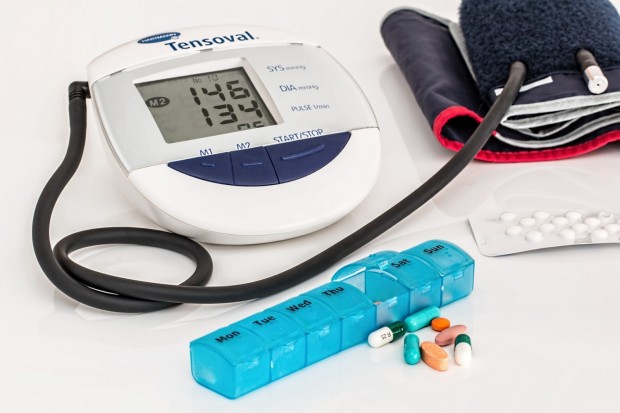What Doctors Are Saying About Health Screening Gadgets
- (Photo : Photo by Google)
Like a fashion trend or the latest phone, there's always a new health fad popping up that can raise some eyebrows. With the rise of the internet, people are doing their own research. It also means that companies are coming up with devices that can be marketed to those concerned with their health.
The problem is that the everyday consumer is not a trained medical professional. Consumers who are using health screening devices at home could be using them incorrectly. They could also misinterpret the results and self-diagnose themselves. Doctors are happy that people want to take their health seriously, but they want to raise awareness of the risks of DIY home screenings.
Putting Health in the Patient's Hands
At-home medical testing kits have become popular over the past decade. Patients often choose to run their own tests at home because it's more affordable and private. The downside is that customers pay out of pocket for testing. Also, there's no supervision on whether the specimen is collected in the right way.
DIY Can Come at a Cost
Last year, the Food and Drug Administration (FDA) approved the first direct-to-consumer genetic test kit. The screening is for three genetic mutations that increase the risk of certain cancers.
Yet, there are thousands of other mutations that could occur. In many situations, cancer could happen without it being hereditary. The test would not be beneficial to most of the population, but it would be bought out of fear and a false sense of control. It's the reason why cancer screenings should need prior approval of a healthcare provider.
The Truth About Direct-To-Consumer Medical Tests
Store-bought kits have a reputation for being inaccurate, but that's slowly changing. One of the first and widely used was the home pregnancy test, also known as Early Pregnancy Test. It hit the shelves in 1976 and took two hours to produce results. Today's innovative pregnancy test takes less than a minute.
While many at-home medical devices are better than what they used to be, the danger lies in the improper use or self-diagnosis in the patient. Doctors are trained to instruct patients and read results that others may have missed.
Bottom line; it's acceptable for patients to take tests at home as long as they don't treat it as a final step. They should always follow up with their doctor, which can be beneficial for those with chronic illnesses. Those who need long-term monitoring benefit from health screening devices.
What Doctors Are Okay With (And Recommend)
These are general DIY health screenings that are often approved by doctors. Regardless of what you are testing for, always stay up-to-date on your checks and address any concerns you have with your doctor.
Glucose Monitoring
Monitoring glucose levels at home is one of the most widely accepted tests out there. Diabetic patients are allowed to purchase over-the-counter blood glucose meters when needed.
Monitoring Cardiovascular Health
Patients that need to watch their cholesterol or high blood pressure can do so at home. One high reading doesn't mean high blood pressure. Users need to measure it at different times while at resting for better results.
For patients that have pacemakers or implantable cardioverter defibrillator, there are precautions. Those at https://sonohealth.org/product/ekgraph-portable-ekg-monitor-detect-afib-abnormalities/ advise against the use of home EKG devices.
Pacemakers have electrical pulses that the EKG can pick up as a heartbeat wave or pulse and may give incorrect readings. Consult with your doctor for more options.
Reproductive Health
Sexual health isn't limited to pregnancy tests. The same tools can be used to monitor fertility. There are also reliable diagnostic tests like Let's Get Checked or EverlyWell to check for STDs and other infectious diseases.
Knowing When to Seek a Professional Opinion
If you do a test and it turns out positive, wouldn't you have to see your primary physician anyways? Going to the doctor is inevitable. At-home testing allows patients suffering from chronic illnesses a chance to keep a close eye on their conditions.
Until healthcare professionals can test and diagnose you remotely, the only way to be 100% is going to their facility. With the advancement of medical technology, it may be possible that one day doctors will be able to make "digital house calls" when patients are not feeling well.

















